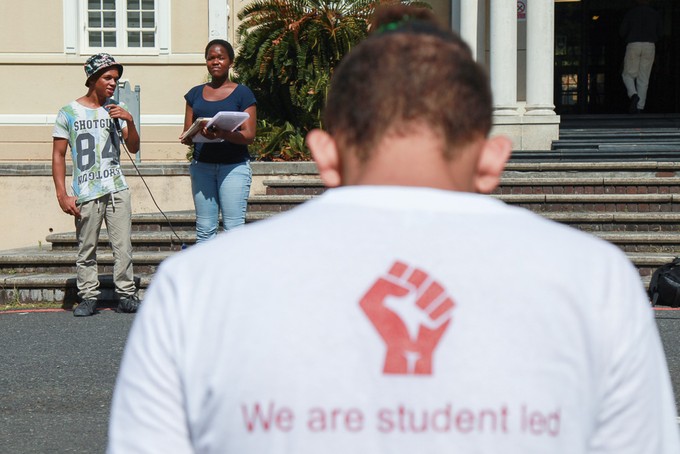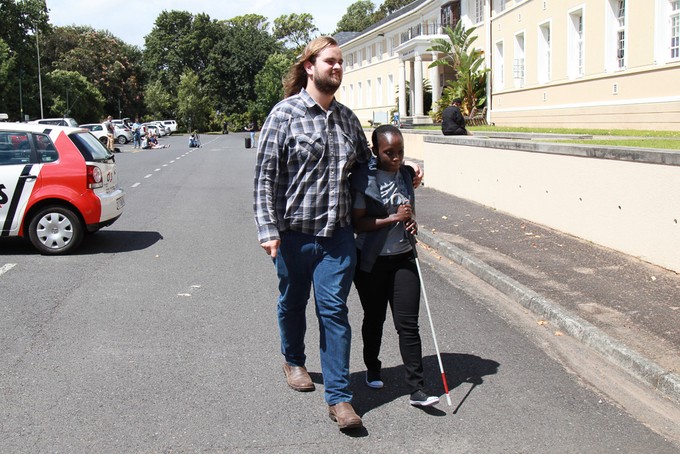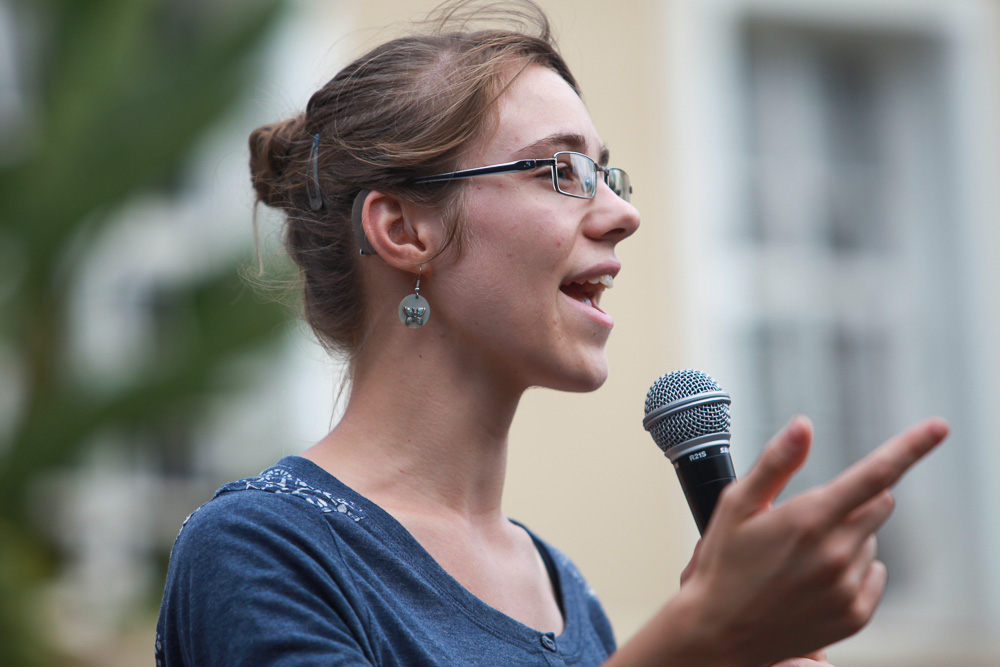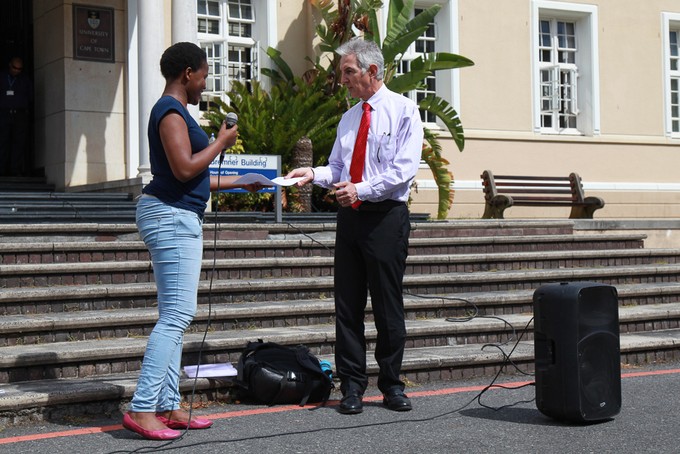Disabled UCT students demand access
"It’s not that we are being difficult or trying to make people's lives harder. We just want access to the education we paid for."
Disabled students gathered yesterday at the University of Cape Town (UCT) to speak about the difficulties of operating in an environment built primarily for abled students. About 50 people attended the event. The leadership of the disabled students handed over a memorandum to Vice-Chancellor Max Price.
The event was hosted by UCT for Disability Justice, an organisation created by disabled student Kanyisa Ntombini. She says she wants it to be an organisation that helps disabled students get through the university’s bureaucracy.
Demands in the memorandum included a complete review of UCT’s disability policy, disability unit and Student Wellness Services (SWS). This included access to more black psychologists as well as disabled-friendly facilities such as bathrooms and theatres. The memorandum also called for staff and students to be trained and sensitised about disabled students.


Joan Byamugisha is blind and completing her PHD in computer science. “As a disabled person you can sometimes feel quite lonely and it’s comforting when you find someone you do not know that helps you out. Where I come from [Uganda], having a disability is terrible. Access to education like this does not exist. In terms of services from the disability unit and attitude from staff, UCT has been a positive experience,” she said.
Byamugisha also said that because her eyes look normal, while walking with a cane students will deliberately stand in her way “to prove whether or not I can see.”

Jessica Bothma is completing a Bachelor of Social Science in Geographical Science and Sociology. She said, “We cannot hear the lecturers as they move around a lot and we cannot hear students speaking behind us. The sign language interpreter is our life line. Unfortunately we are now down to one interpreter for five deaf students.”
“What’s important right now is access to visual aids such as posters, captions, sub titles, sign language interpreters & note takers,” she said.
“In terms of social interaction with students on campus, not everyone is aware of deafness. People yell at us or think that we’re being rude by ignoring them.”
“Lots of people freak out when they hear we’re deaf. They just say never mind and walk away. No, you wanted to speak to us, so make an effort. Be patient with us because we cannot hear you.”
Support independent journalism
Donate using Payfast

Next: Quiet walk home turns into nightmare for Malawians
Previous: Parents refuse to pay for teachers who don’t teach
© 2016 GroundUp. 
This article is licensed under a Creative Commons Attribution-NoDerivatives 4.0 International License.

